Japanese Zijin Grass Choir Conveys a Message of Peace at the Memorial Hall
This year marks the 80th anniversary of the victory of the Chinese People's War of Resistance Against Japanese Aggression and the World Anti-Fascist War. We have been preparing for this year's performance for two years. The choir's mission is to 'love flowers, love singing, love peace, and love humanity.' With a heartfelt wish to call for peace, we have come once again to the memorial, singing the story of Zijin Grass in its hometown," said Takako Ohashi, Japanese children's literatureauthor and honorary chair of the Japanese Zijin Grass Choir.
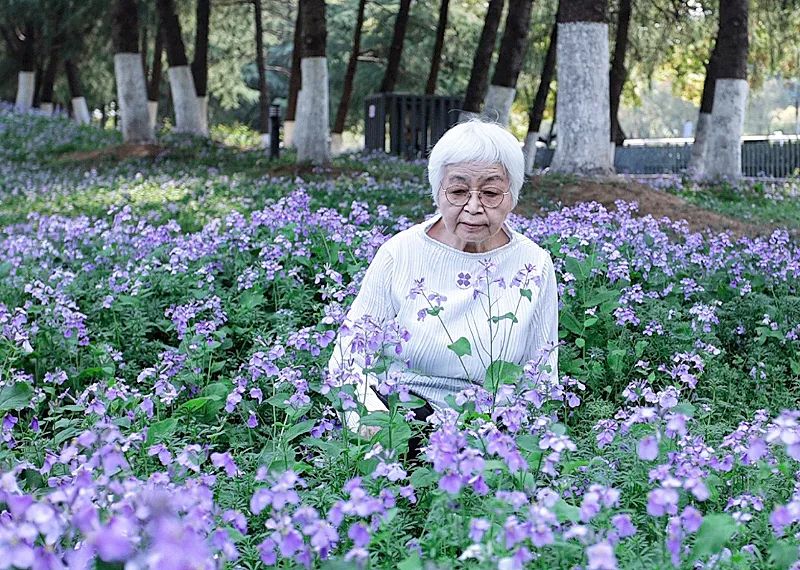
On the afternoon of March 25th, more than 60 members of the Japanese Zijin Grass Choir arrived in Nanjing in two groups from Tokyo and Osaka, marking the start of their 13th performance tour in China. This morning, the choir members visited the Memorial Hall, where they engaged in dialogue with descendants of Nanjing Massacre survivors. Together with members of a Chinese choir, they planted a symbolic "Music Tree" in the Zijin Grass Garden as a gesture of peace.
"Dialogue between descendants of survivors and descendants of the Japanese invaders of China."
The members of the Japanese choir walked into the Nanjing Massacre Historical Exhibition. Yellowed historical photographs, video testimonies of survivors, and wartime diaries of Japanese soldiers transported everyone back to that cold winter of 1937. Older people paused to listen intently to the explanations, their eyes welling with tears.

Xia Yuan and Cao Yuli, inheritors of the historical memory of the Nanjing Massacre, shared with the choir members the stories of their families' traumas and the passing down of historical memory.
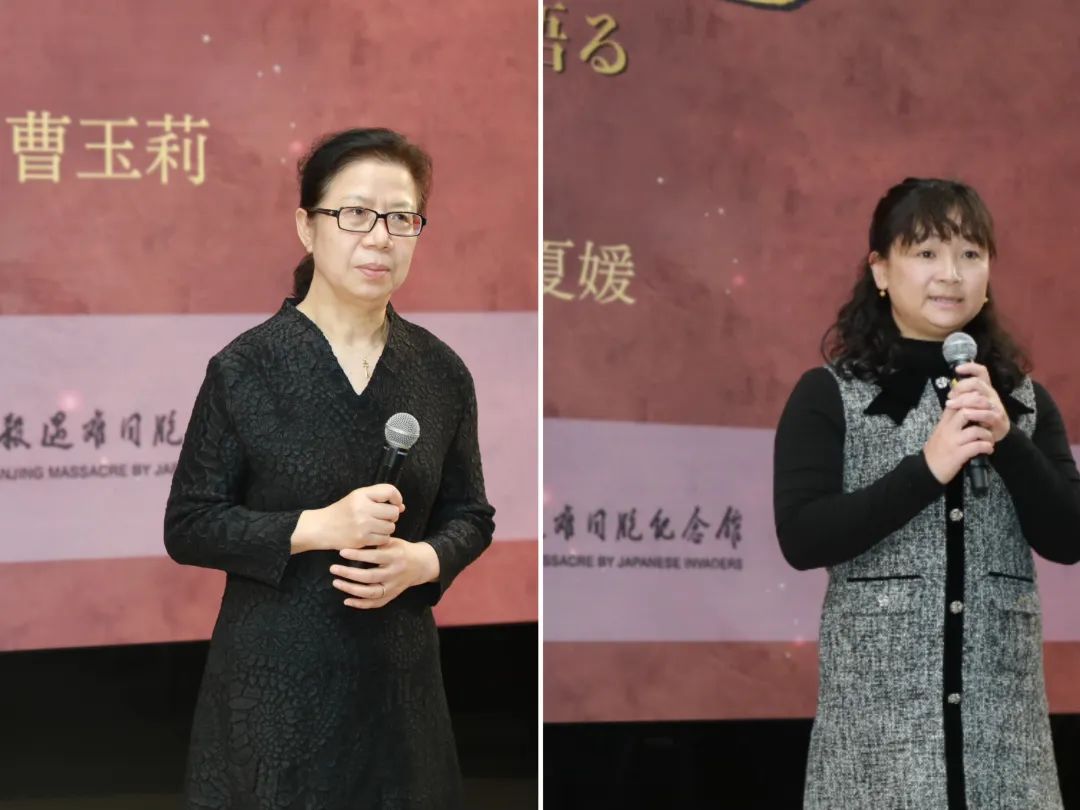
Masayo Shinomiya, a social studies teacher at a Japanese middle school, asked Xia Yuan, "Your grandmother's family was all killed by the Japanese army at the time—how did she survive?" Xia Yuan replied, "My grandmother and her 4-year-old younger sister survived for 14 days by living off stir-fried rice and leftovers. Later, she was taken in by a civilian relief organization..." Masayo Shinomiya said, "Your grandmother's story should not be forgotten. I will tell my students the true history."
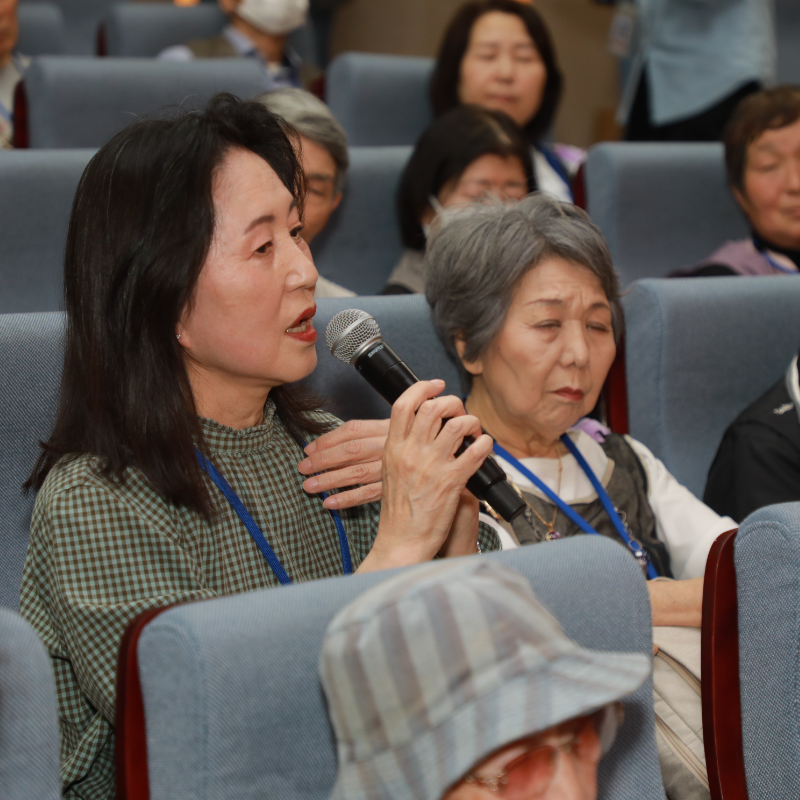
During the listening process, 8-year-old Hiromi Bandō was particularly emotional. Her father had been a Japanese soldier who arrived in Nanjing on December 14, 1937. He stayed for only one day before continuing the march, but what he witnessed on that single day was a scene of unimaginable horror. Hiromi Bandō, a former Japanese professor at China Radio International and the host of the choir’s first performance in Nanjing in 2001, said:"In 2004, I compiled and published the letters my father left behind. In 2012, together with my companions, I protested against the Mayor of Nagoya's denial of the Nanjing Massacre and helped mobilize civil efforts to organize a peace concert. I sincerely hope that the tragedies of my father's generation will never be repeated because peace is the most precious treasure of all."
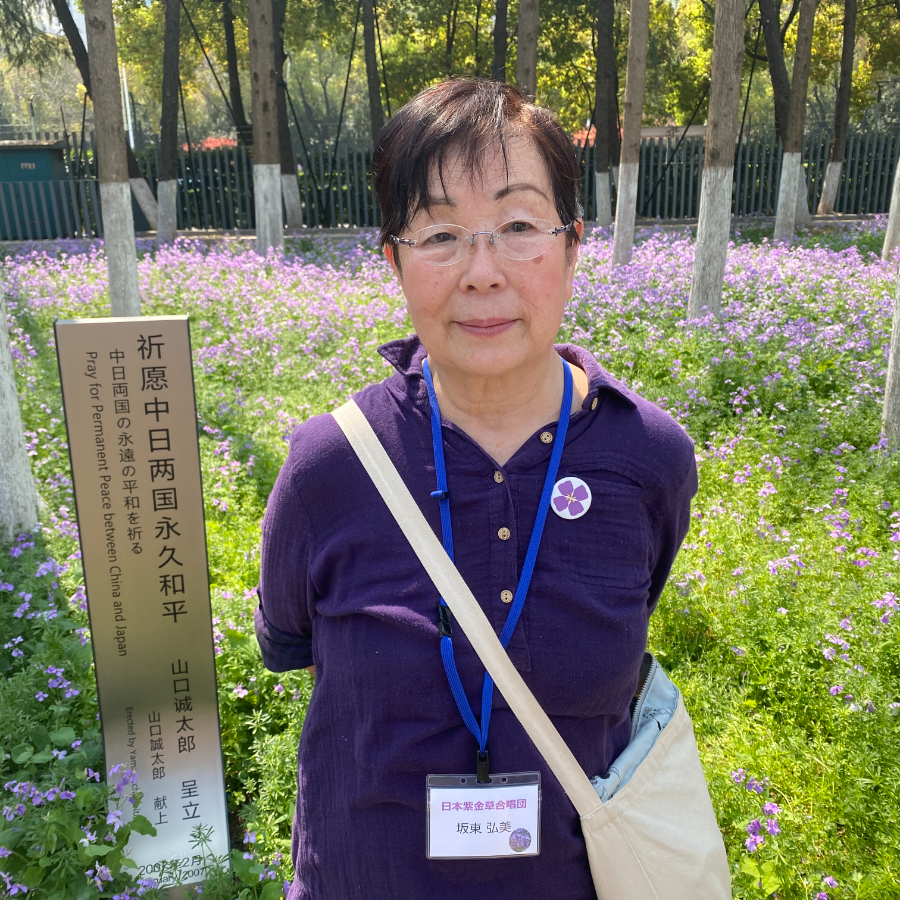
The Chinese and Japanese choirs joined hands to plant a “Tree of Peace through Music.”
At the Zijin Grass Garden in the Peace Plaza of the Memorial Hall, Zhou Feng, the director of the memorial hall, Takako Ohashi, the current choir director Akihito Nakamura, and young choir member He Quanjie from the Zijin Grass Children's Choir, together added soil and watered the pine tree.
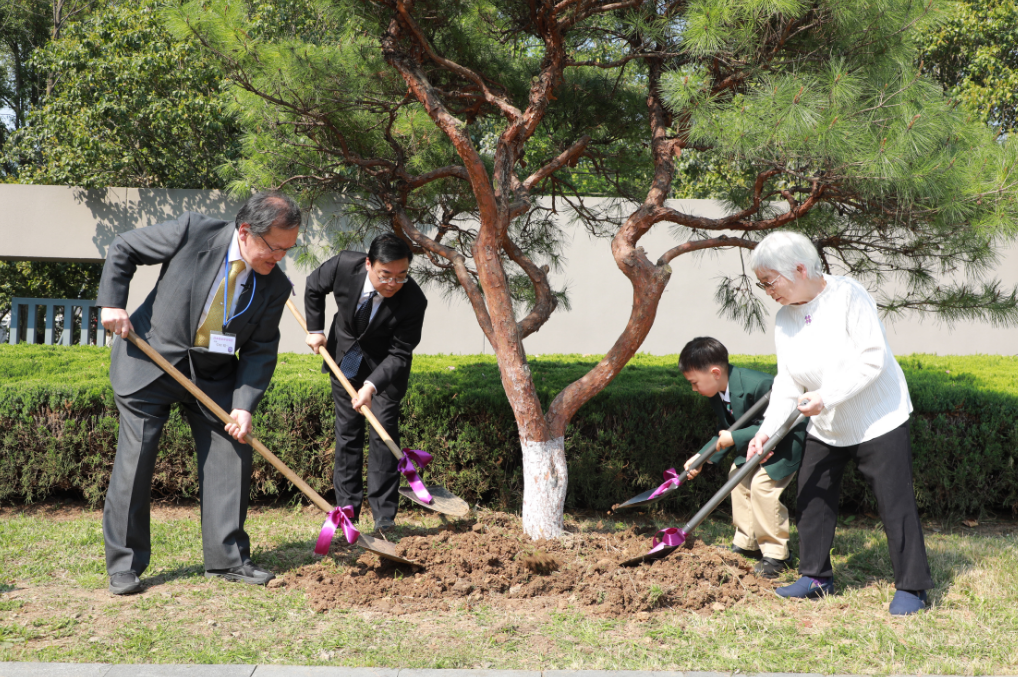
Eight-year-old He Quanjie, the youngest member of the Zijin Grass Children's Choir, tied a QR code icon onto the tree trunk together with Takako Ohashi. When scanned, the code plays the song "The Flower of Peace, Zijin Grass," its gentle melody flowing through the spring air.

Akihito Nakamura,The current choir director, said, "The pine tree symbolizes resilience and strength. I hope peace, like this pine tree, can take root and grow in people's hearts. In Japan, many young people learn for the first time—through our performances—that Japan was the aggressor in World War II. In 2001, I came to Nanjing as a member of the choir. This time, I return as the choir's leader, and what I feel most is a deep sense of emotion. I truly believe that music can transcend language and borders, leaving a lasting resonance in the hearts of people in both China and Japan."
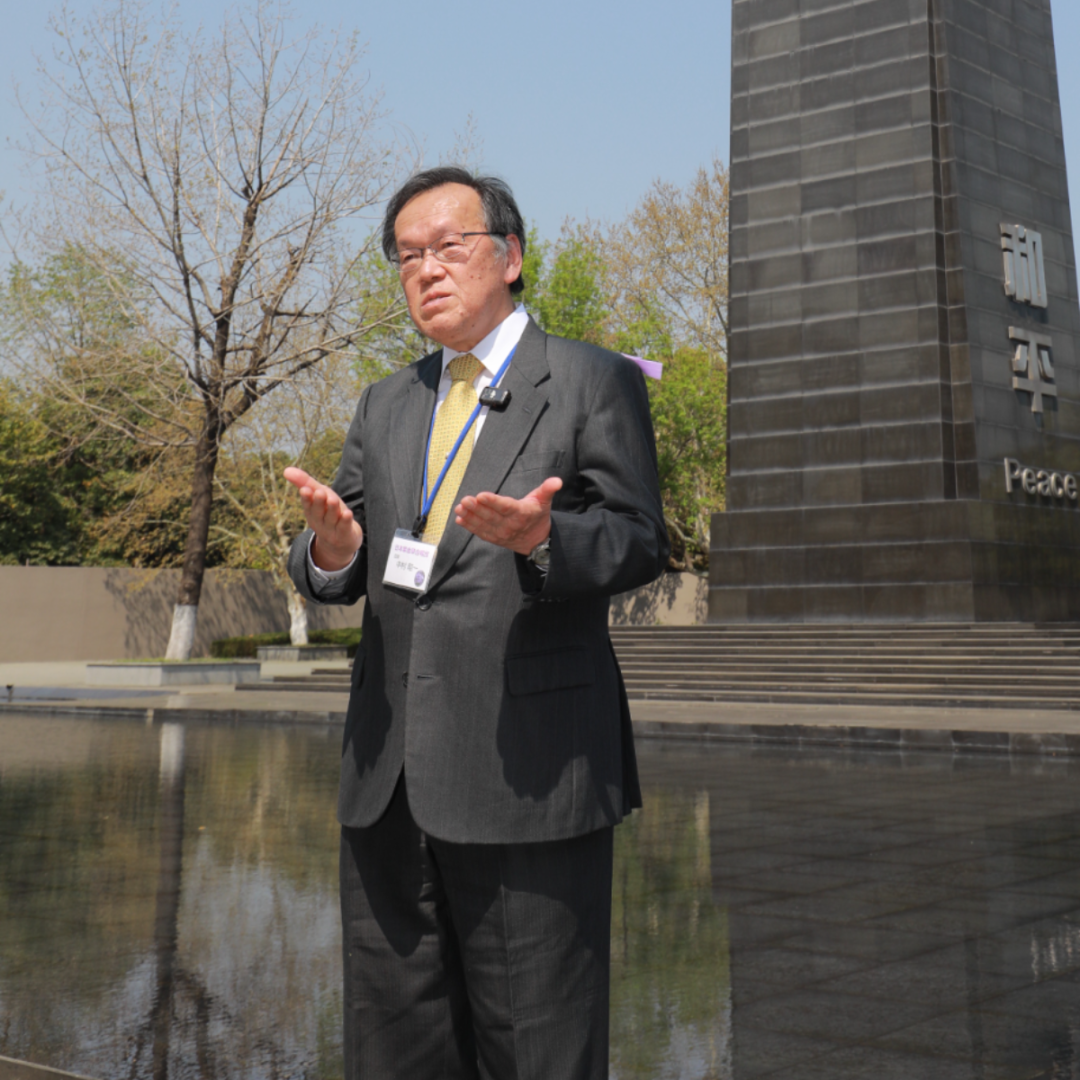
Xu Yuhan, a member of the Zijin Grass Children's Choir, said, "It was only after joining the choir that I learned the story of Zijin Grass. I hope our singing can be like this seeds drifting to faraway places,” ." Xu Ruiyan said, "I also hope tosing together with the grandfather and grandmother from the Japanese choir, using our voices to spread a message of peace.”
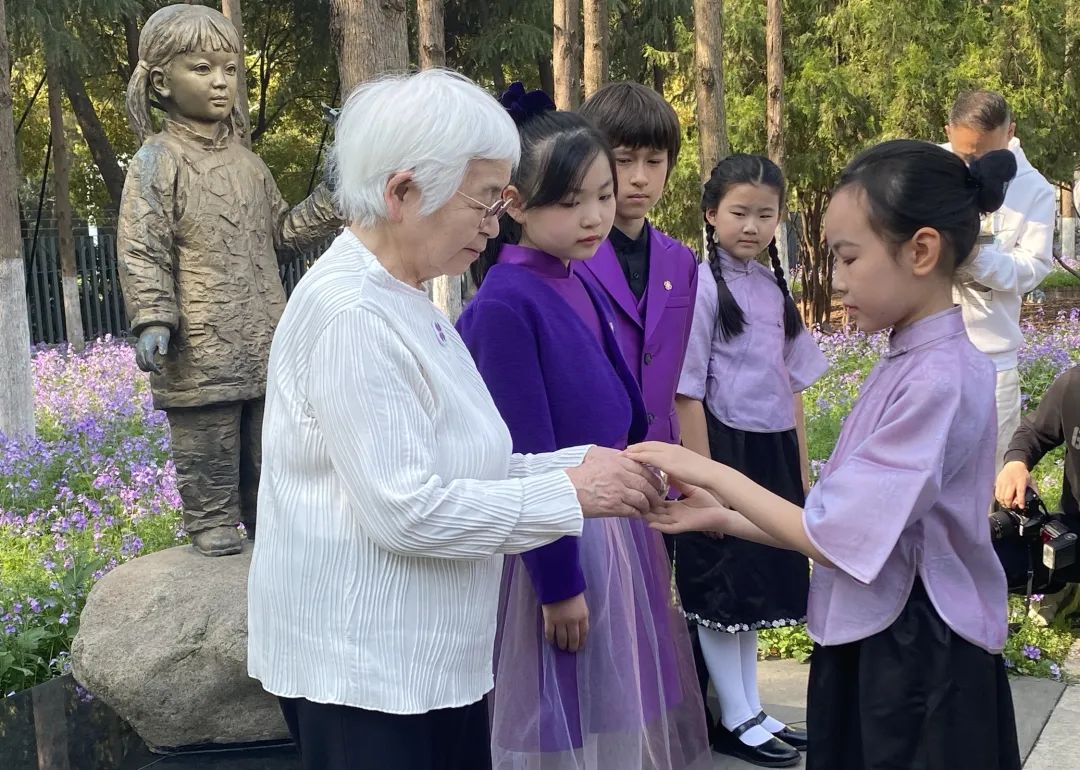
Xu Yuhan presents Zijin Grass seeds to Takako Ohashi.
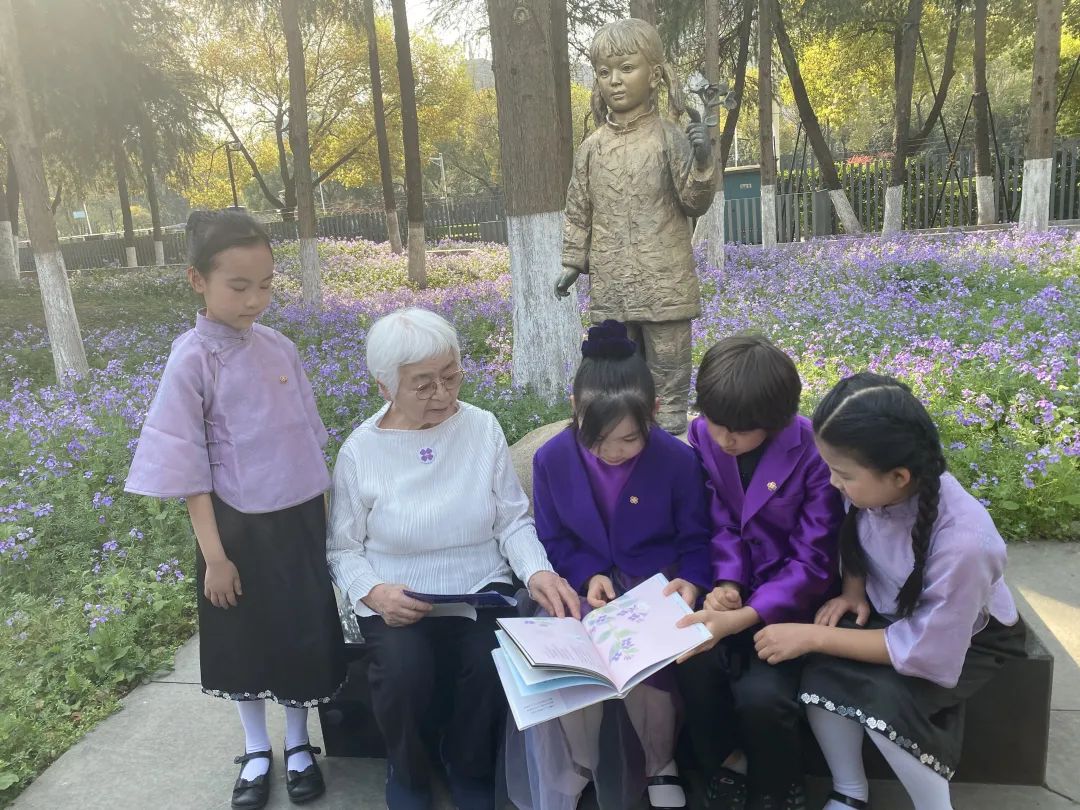
Takako Ohashi and the children gather around the bronze statue of the Zijin Grass Girl for an exchange.
With tears in her eyes, Takako Ohashi said, "Seeing the children in China convey peace through music has deeply moved me. I will take these seeds back to Japan and plant them so that the Zijin Grass can take root and blossom there—just like peace taking root in our hearts.”
Singing the Story of Zijin Grass in the Zijin Grass Garden
In the Zijin Grass Garden, the choir members spontaneously began to sing "The Flower of Peace, Zijin Grass." Harie Imai's eyes were moist. She had come to Nanjing with the choir 12 times and had never missed a performance. She choked up and said:"The Japanese army once committed heinous crimes in China, which brought indelible pain to the Chinese people. I have always felt profound sorrow and remorse for this. I express my repentance through singing and hope to convey to the Chinese people a profound reflection on history."
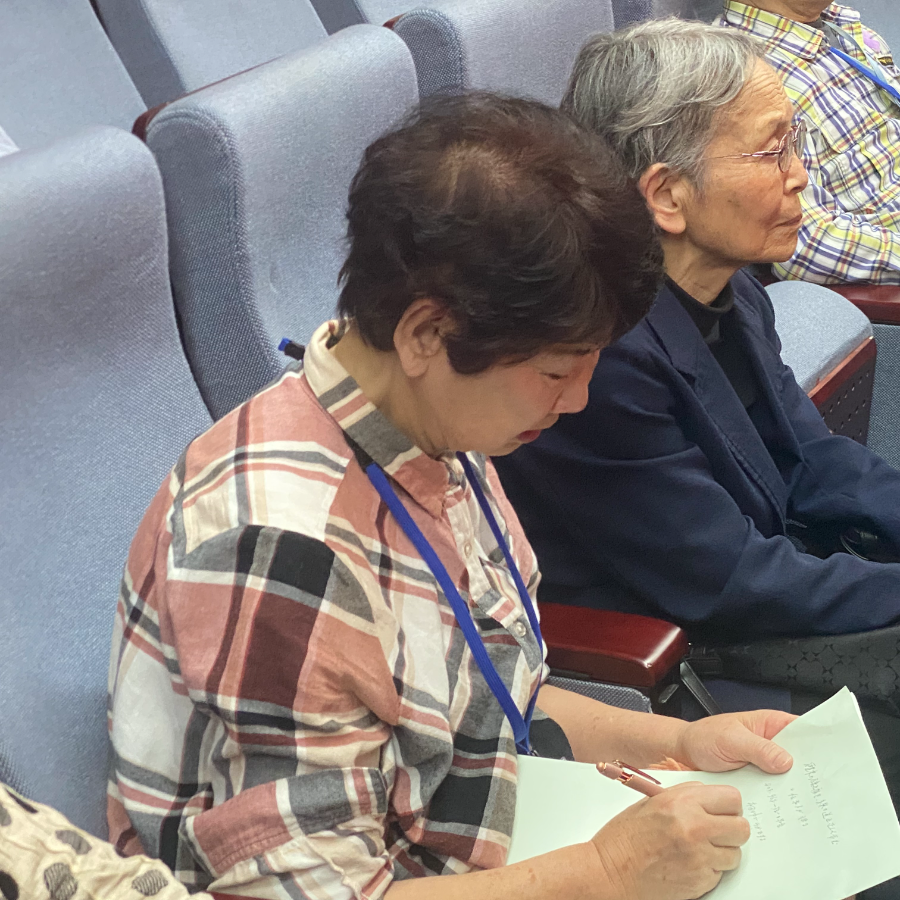
The vast expanse of Zijin Grass stretched continuously, and seeing this scene, Katsuyoshi Nakano was deeply moved. Nakano, who is proficient in Chinese, translated "Zijin Grass" by Chen Zhengrong into Japanese and published it in Japan. He was formerly a Japanese math teacher and a visiting professor at the Harbin Academy of Social Sciences. He said:"In 1982, I came to China for the first time and visited cities such as Shanghai, Nanjing, and Wuxi. The last time I was in China was in 2017. China has undergone significant changes over the years. I have a strong interest in Chinese history and have translated books such as Testimonies of Unit 731 and The Autobiography of the Director of the Fushun War Criminals Management Centre. Reflecting on history is to safeguard peace.
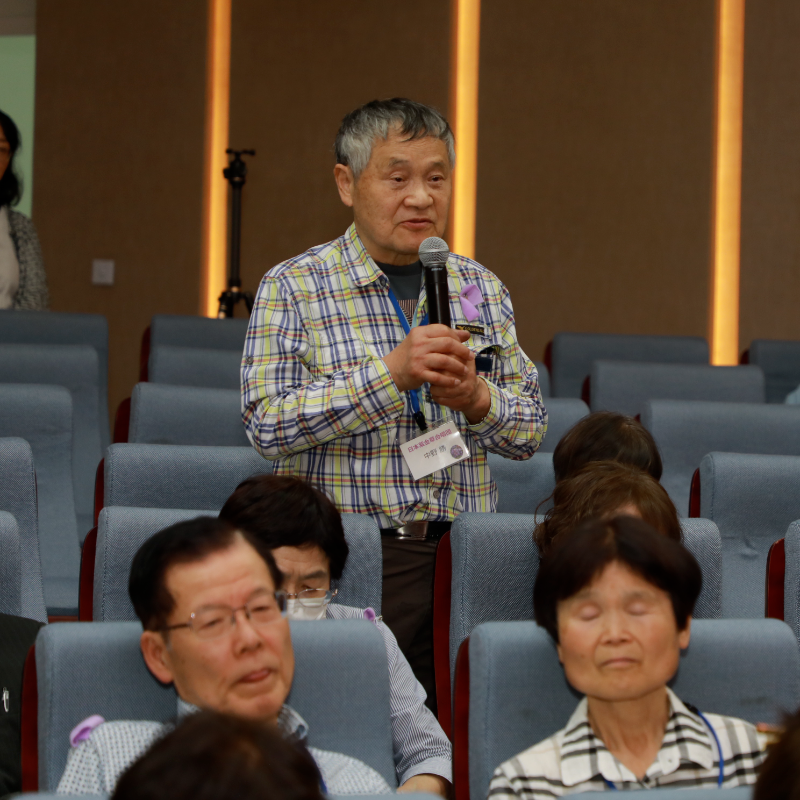
"Telling History and Praising Peace Through Song"
Two years ago, the Japanese Zijin Grass Choir began preparing for this performance in Nanjing. The choir recruited members nationwide in Japan, and ultimately, more than 60 people signed up. They come from all walks of life, including historians, teachers, and company employees. The average age of the members is over 75, and among them are three individuals who are 88 years old. Hideo Kirita, aged 88, is an emeritus professor at Japan's Chuo University and a member of the "Nanjing Incident Research Association." He has been studying modern Chinese history for over 40 years and has actively participated in civilian activities to promote Sino-Japanese friendship. This year marks the 60th anniversary of his first visit to China. He is also the director of the Japanese "Regenerated Earth" Choir. He said:“It is truly alarming that the history of the Nanjing Massacre is absent from Japanese textbooks—this does not help the friendly development of China-Japan relations. I hope people will not forget this part of history and will cherish the peace it represents. Through singing, I wish to express the shared longing of both peoples for peace and friendship.”
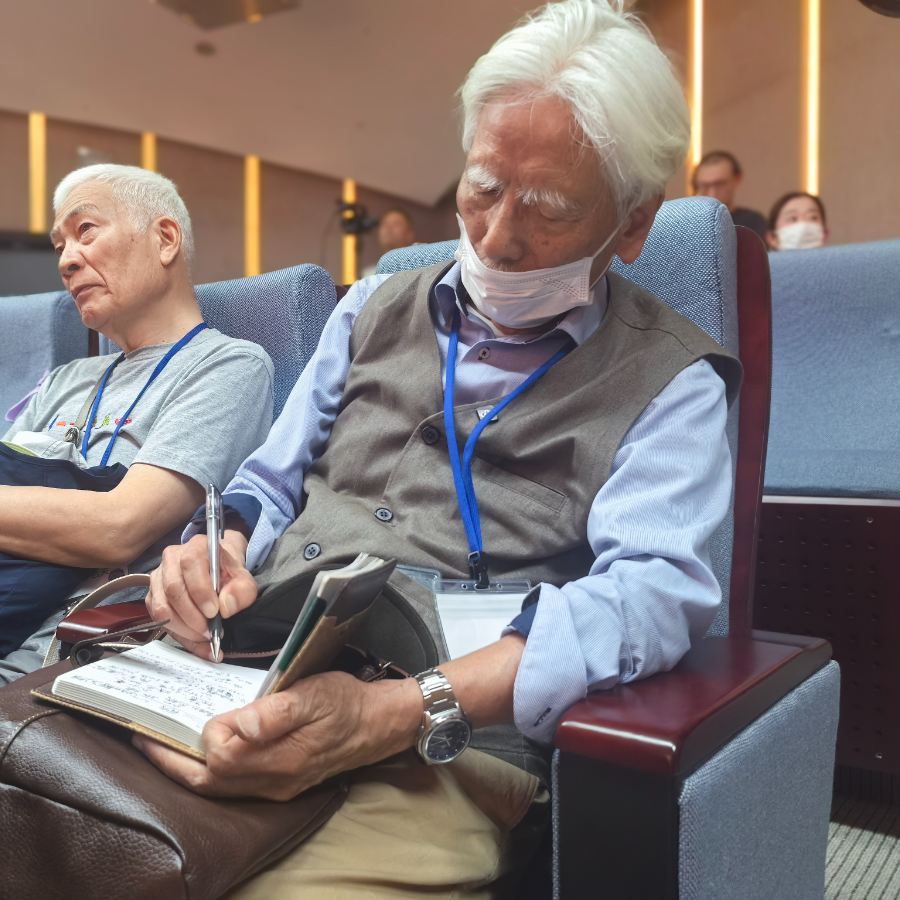
Tanaka Yoshinori, now 80 years old, is the Vice President of the Japan-China Friendship Association. e has visited Nanjing ten times and has witnessed the city's development over the years. He said: "I have been interested in Chinese history since I was a child. When I was 20, I first learned about the Nanjing Massacre, and I believe this part of history must not be denied—Japan should reflect on it. Sixty years ago, I joined the Japan-China Friendship Association to promote the peaceful development of China-Japan relations through people-to-people exchanges. With this visit to Nanjing for our performance, I want to pay my respects to the victims of the Nanjing Massacre and express my sincere wish for lasting friendship between our two countries."
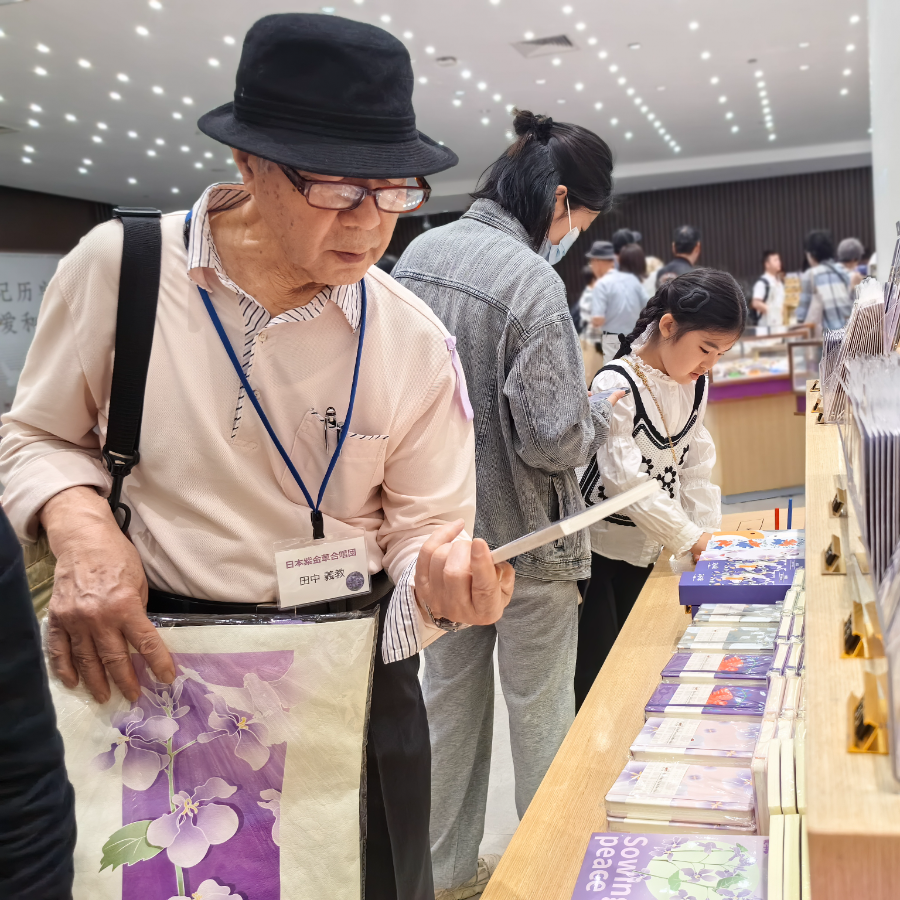
Ito Ichie's father was killed in action in the Philippines during World War II, and she grew up hating war. After joining the Zijin Grass Choir, she learned that Japan had been an aggressor in World War II. She said, "Japan caused great harm to the people of Asia during World War II. We must take action to atone for our past."
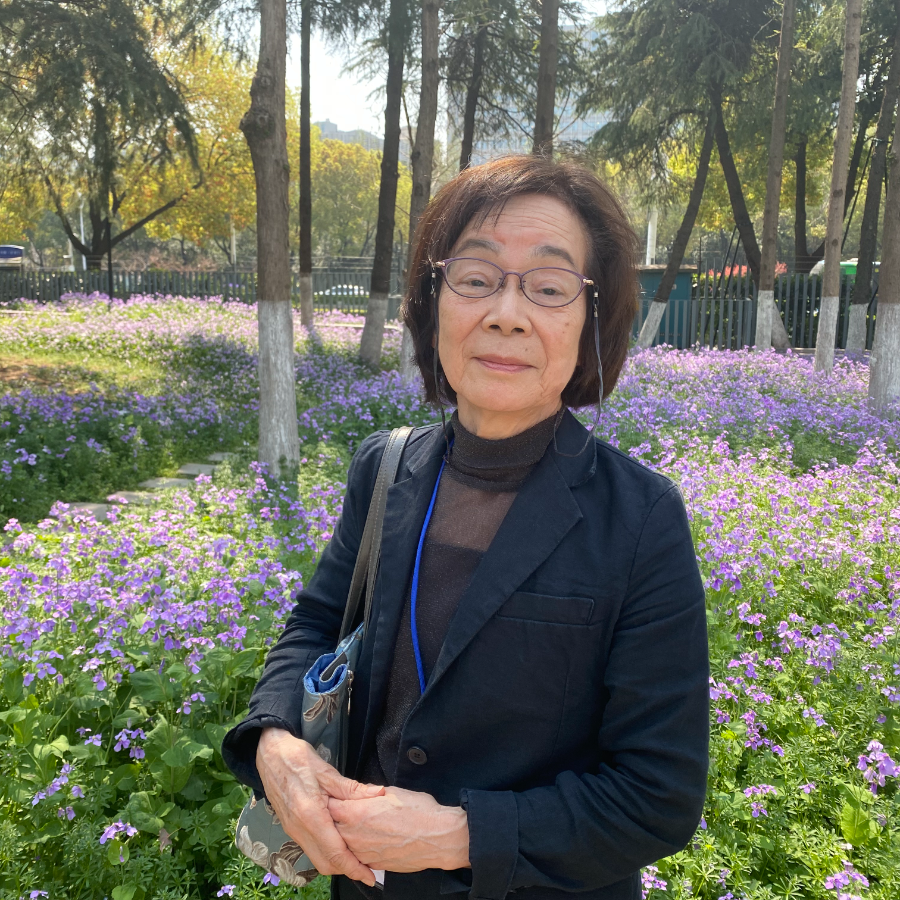
In 2001, Eriko Tada came to Nanjing for the first time with the choir. Over the following years, she travelled back and forth between China and Japan for performances. After a gap of 20 years, Eriko Tada returned to Nanjing once again, bringing with her a handwritten letter. She wrote: "It has been 20 years since I last visited Nanjing. Mr. Ishikawa, the organizer of the Osaka Zijin Grass Choir in Japan, passed away last year. Now, his wife has joined the choir."
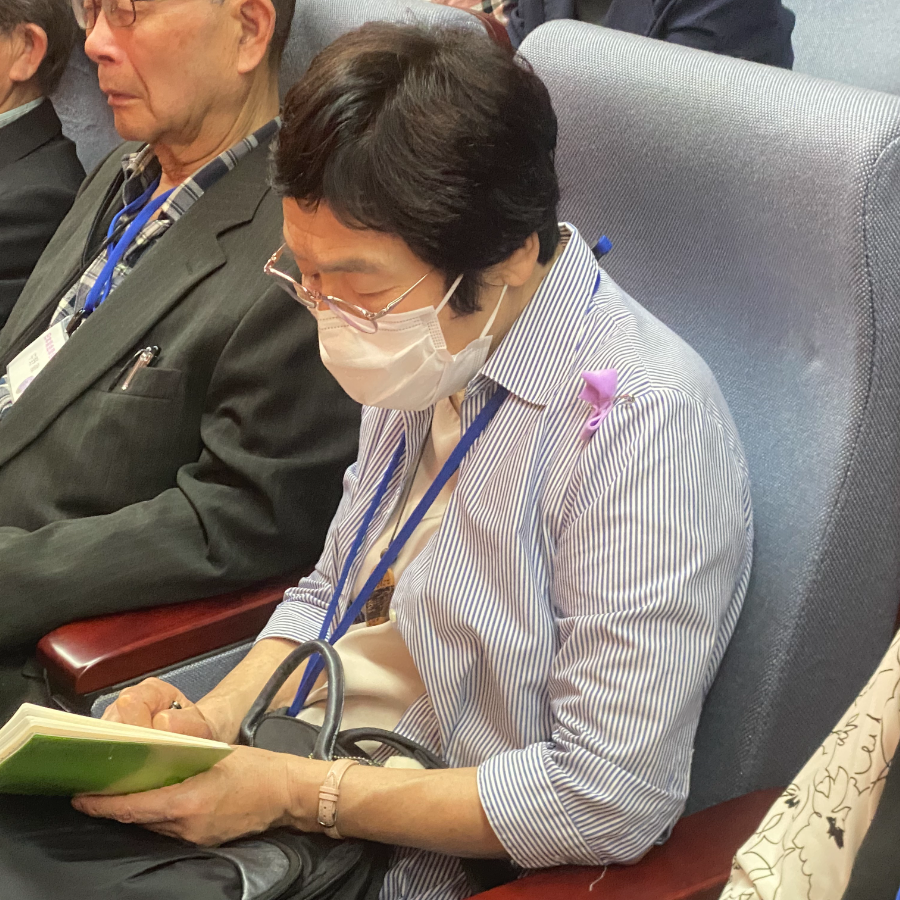
Aiko Hatano, a member of the choir, is a Japanese orphan who was born in Harbin, China, in 1942 and lived there until she was 44 years old before returning to Japan. She said, "My adoptive mother encouraged me to go back to Japan and search for my relatives. I joined the choir because I want to use my singing to help more Japanese people understand the real history."

Tomorrow afternoon, the "Remembering History, Cherishing Peace" Zijin Grass Choir Concert will be held, with the Chinese and Japanese Zijin Grass Choirs performing together on the same stage. Stay tuned!

